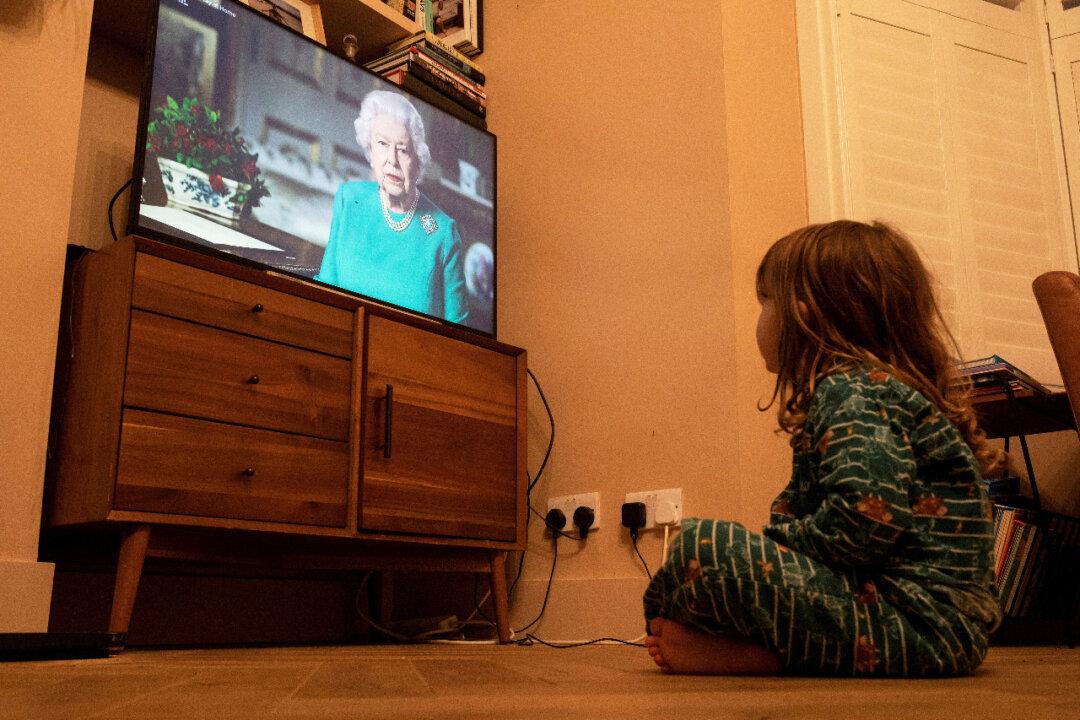Britons spent 40 percent of their waking day watching TV and online videos at the height of the CCP virus lockdown in April, including spending twice as long watching streaming services such as Netflix, Disney+, and Amazon Prime Video, regulator Ofcom said on Wednesday.
Adults, who were advised by the government in late March to stay at home, spent on average six hours and 25 minutes a day watching news and entertainment, Ofcom said, a rise of almost a third on the same month a year ago.





